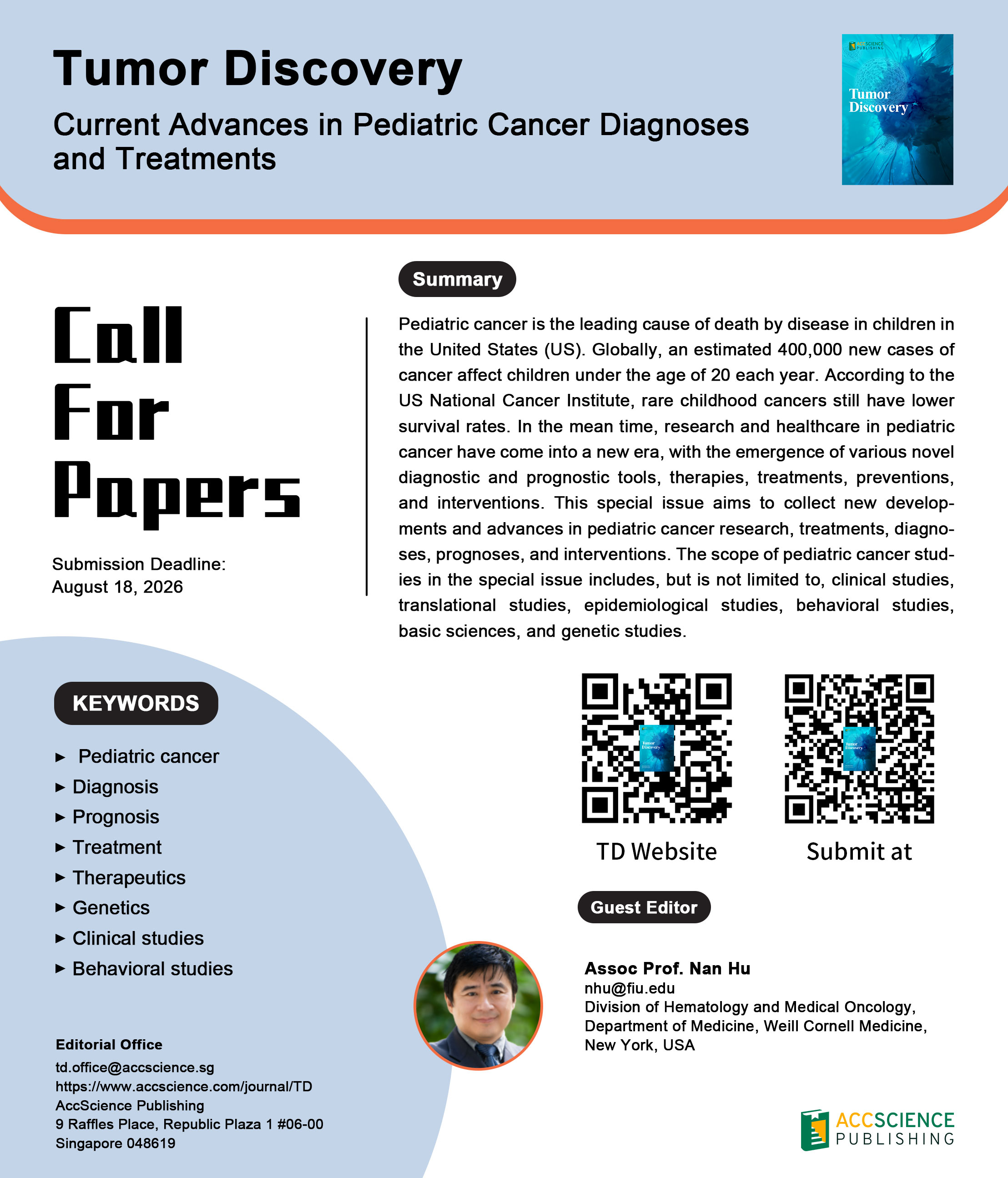
Pediatric cancer is the leading cause of death by disease in children in the United States (US). Globally, an estimated 400,000 new cases of cancer affect children under the age of 20 each year. According to the US National Cancer Institute, rare childhood cancers still have lower survival rates. In the mean time, research and healthcare in pediatric cancer have come into a new era, with the emergence of various novel diagnostic and prognostic tools, therapies, treatments, preventions, and interventions. This special issue aims to collect new developments and advances in pediatric cancer research, treatments, diagnoses, prognoses, and interventions. The scope of pediatric cancer studies in the special issue includes, but is not limited to, clinical studies, translational studies, epidemiological studies, behavioral studies, basic sciences, and genetic studies.
Recent advances in pediatric cancer research: An overview


